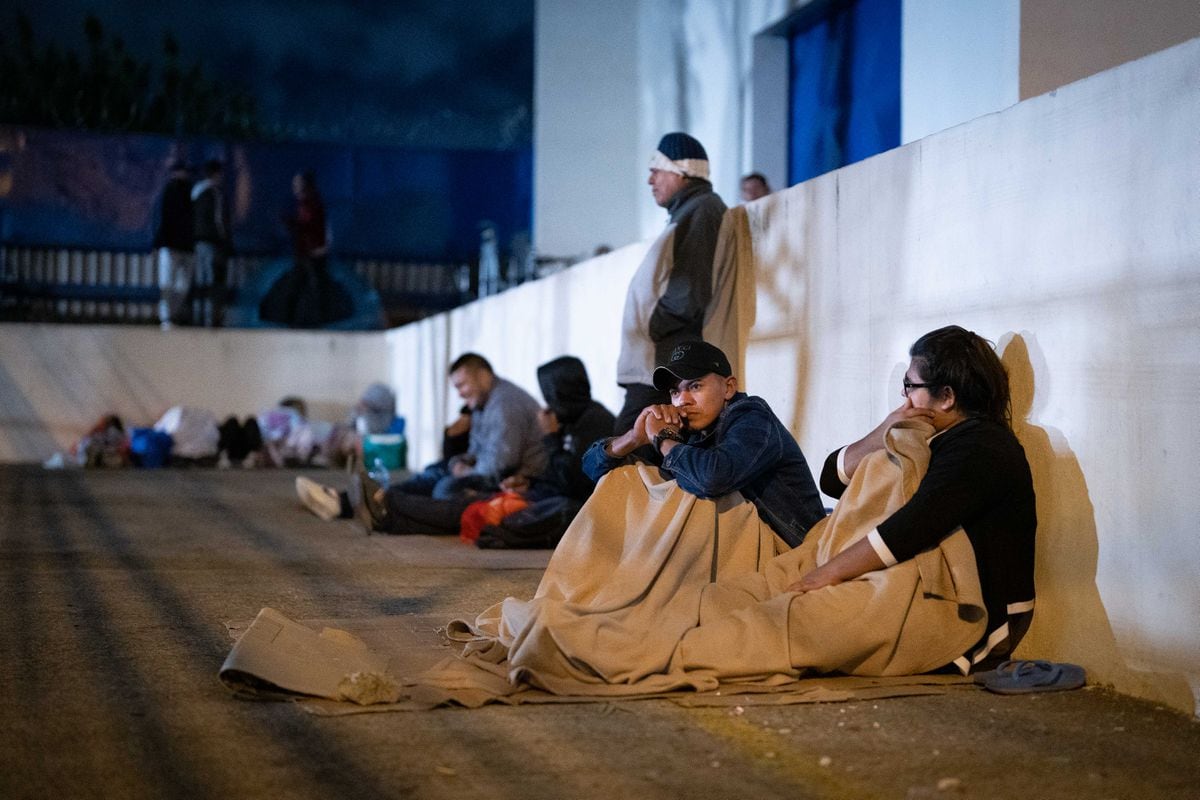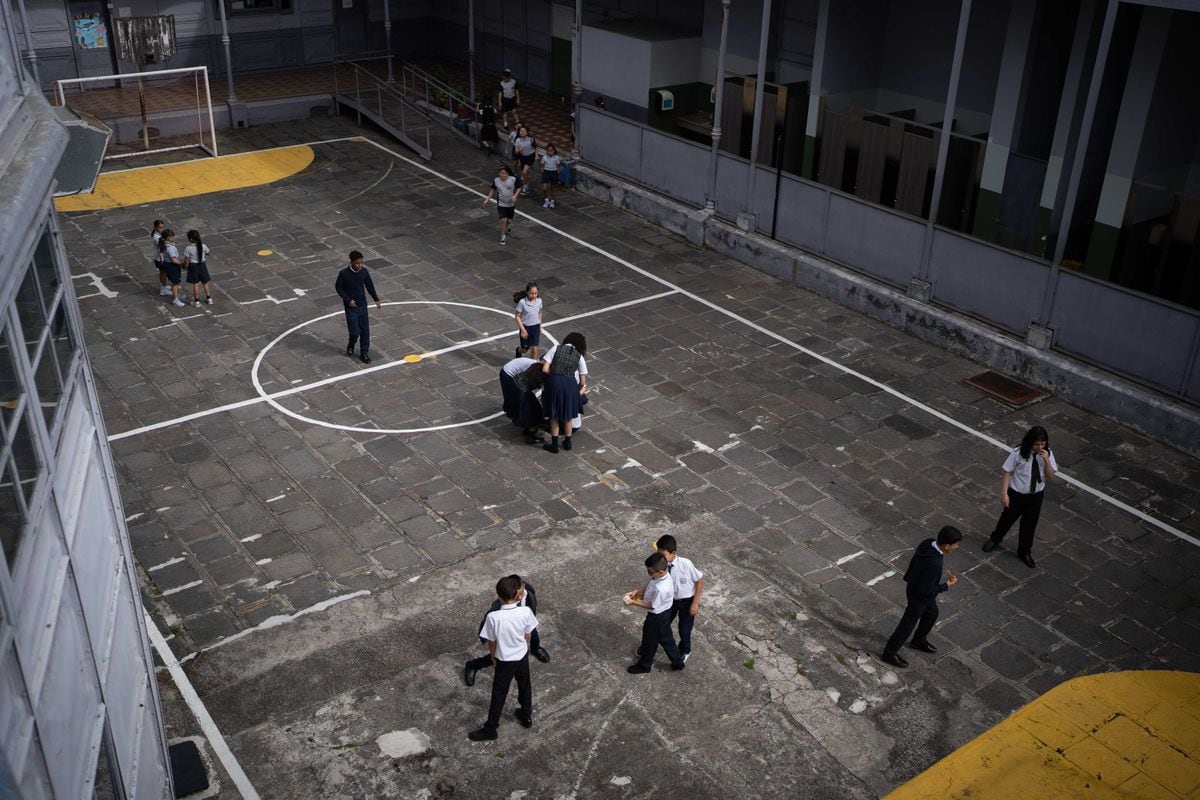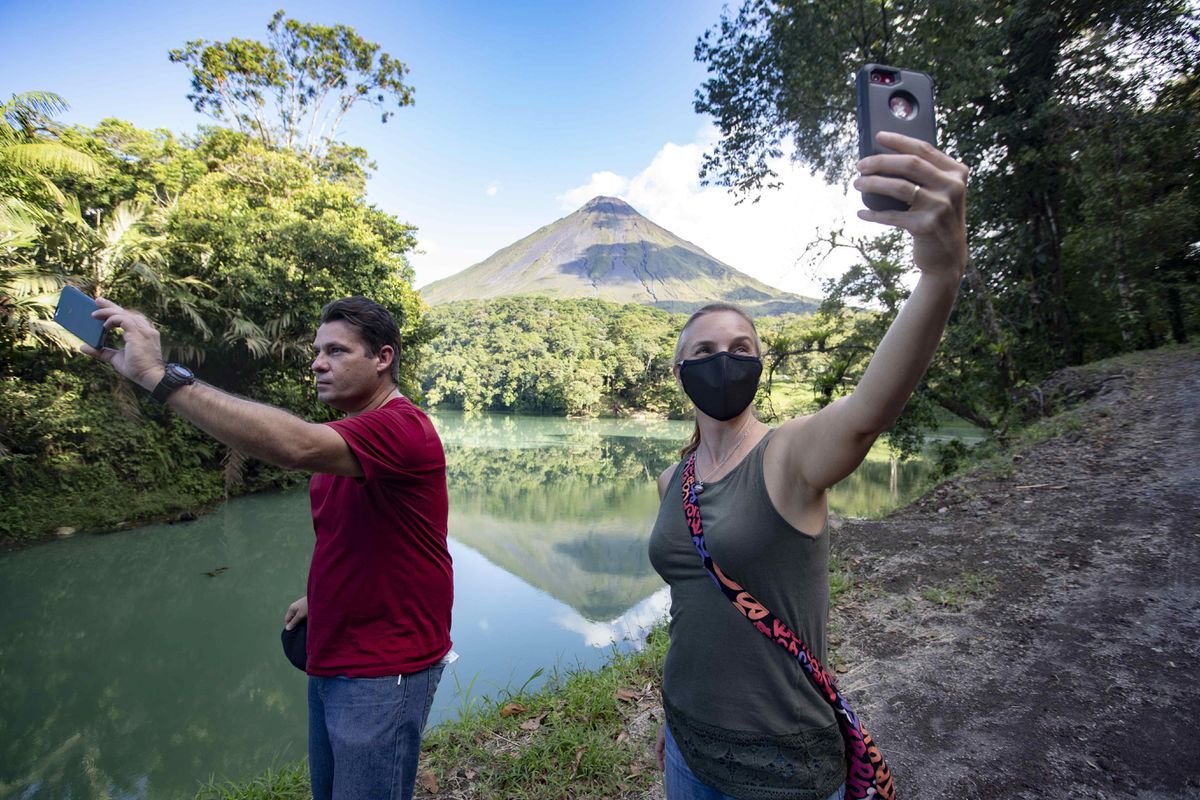David Domingo Dávila Guido has not yet found a piece of cardboard to lie on the sidewalk where more than fifty Nicaraguan migrants are huddled together, huddled in groups like penguins, resisting the 17-degree heat this February night in San José, which it falls on them –to worsen the thermal sensation– accompanied by cold gusts.
In the shadow of a yellowish light, the 31-year-old man preferred to wrap up in a gray blanket that a humanitarian group gave him earlier.
“The cold is hard and I've already been here two nights.
At dawn it gets worse, but I hope to get a number today, ”he says without much hope.
His face is enveloped by the steam that comes out of the cups of hot coffee that almost everyone holds close to their chests, like embers that soothe their hands.
The “number” to which Dávila Guido refers is one of the fifty places that the officials of the Refuge Unit of the Costa Rican capital give every morning to asylum seekers since the president of the Central American country, Rodrigo Chaves, substantially modified the end of November 2022 the policy to request international protection in Costa Rica.
One of the most visible consequences of the changes have been these improvised migrant camps in the open, since before the reform you could request refuge through a phone call or via the website.
The Chaves Administration now established that protection can only be requested in person and during a limited time window of 30 days after entering the territory.
However, fifty daily quotas are meager for the thousands of Nicaraguans fleeing the political violence of the regime of Daniel Ortega and Rosario Murillo, as well as the economic crisis that the country has been going through since the social protests of 2018.
According to the Costa Rican immigration authorities, from 2018 to the announcement of the Chaves reform on November 30, they have received 222,056 refugee applications, of which 172,689 are pending resolution.
Although among them there are Cuban, Venezuelan and Haitian migrants, 90% correspond to Nicaraguans.
The immigration system has been exceeded and President Chaves argued that "the measures" are "to prevent our refugee regime from being misused by people who want to emigrate to Costa Rica, stay here to work."
According to the president, between 80% and 90% of applicants do not meet the requirements for this immigration category.
Jorge Ramírez, a 31-year-old Nicaraguan, who was studying Systems Engineering in Managua before leaving the country.Carlos Herrera
The president also lamented the lack of financial support from the international community to attend to the thousands of asylum seekers.
“We are not seeing the support of the countries that generate the phenomenon to some extent, such as the United States, we are not seeing the support of the International Organization for Migration, we are not seeing the support of the United Nations or the High Commissioner for Refugees (UNHCR),” he said.
The other two measures – which have been controversial for organizations that defend and accompany migrants – have been, first, that the work permit for refugee applicants will no longer be granted expeditiously.
They must resort to another administrative process.
And second, that the applicants will not be able to leave Costa Rica.
Before, the impediment was traveling to their country of origin, but now they cannot travel to third countries, something that affects a good part of a highly political displaced population, among whom stand out opponents, human rights defenders and social leaders, who attend international forums and spaces to denounce the Ortega-Murillo regime.
The Costa Rican immigration authorities deployed their Professional Police on January 20 to discourage the formation of migrant camps, especially to prevent minors from spending long days at the foot of that enormous blue gate that covers the Refuge Unit, located in a industrial area on the outskirts of downtown San José.
Although the number of those who remain in the institution has dropped, at night, the guards of factories near the refuge warehouse told EL PAÍS, people plant themselves with pieces of cardboard that make mattresses, blankets and coffee cups with the hope to quickly obtain a quota to not endure more in the open and without food these first nights of 2023, which have been decided by a cold front that hits Costa Rica.
“They invent a bunch of crime for you”
David Domingo Dávila Guido comes from El Rama, a municipality on the southern Caribbean coast of Nicaragua, where for ten months of the year the heat tends to be oppressive, with soaking humidity.
That is why this cold Josefino is so difficult for this Nicaraguan, who does not hide that one of his motivations for crossing the porous border irregularly is to achieve economic stability.
"A little job, then, to get ahead," he says.
He is a deeply religious man, though he doesn't even wear a crucifix to betray his Catholicism.
He left Nicaragua two weeks ago as light as possible.
In El Rama he was director of the choir at the Nuestra Señora de Fátima church, but in recent months he began to feel "insecure."
“There [in Nicaragua] many things are prohibited, like the father giving a homily that goes against the government... Priests and a bishop are in prison.
They speak because many injustices have been committed, but nobody can say anything because they throw you in jail;
They invent a bunch of crimes that you have never committed.
That is the problem with the government”, explains Dávila Guido.
Refugee applicants try to sleep, outside the Costa Rican Refuge Unit, this Thursday.Carlos Herrera
The migrant says that he felt the pressure when some nuns who helped the choir "were sent to take" out of Nicaragua.
"It's just that they, the policemen, were coming to the church every Sunday to see what was said in the homily... and they also recommended us not to sing some songs."
It was when he decided to come to Costa Rica for two fundamental logistical reasons: "It's the neighboring country" and because heading to the United States is more expensive and dangerous... "In Mexico they kill us," says Jorge Ramírez, a 31-year-old Nicaraguan who hear the conversation a couple of meters away.
The young man was studying Systems Engineering at the National Autonomous University of Nicaragua (UNAN-Managua),
In fact, Ramírez crossed the border with his son into Costa Rica.
His life fell apart in 2020 when his wife died of a sudden heart attack.
So risking coming to the United States with the little one was never an option for him.
The first wave of exiles in 2018 went to Costa Rica, but after the pandemic hit the Costa Rican economy and the high unemployment rate, the flow headed north.
Only in 2022, 4% of the Nicaraguan population, that is, more than 300,000 people, mostly fled to the United States.
However, apart from the dangers of the crossing, the closure of the border imposed by Joe Biden in exchange for a "humanitarian parole" has left thousands in bewilderment.
And Costa Rica continues to be the closest country, "the neighbor", despite how expensive it is and the lack of jobs.
“I have to watch over my son and my mother.
While I get the shelter appointment, the child is being cared for by a brother who came before... I have been here for a week.
You know we come with limited resources and it would be nice to have a number today.
If not, then it doesn't matter if it's cold as long as my son has a better future and meets his goals”, says Ramírez.
The young man leans back on the cardboard that is on the cold sidewalk.
He puts on his headphones and throws the blanket over his face to wait for dawn to come with a quota that will allow him at dawn to enter through the enormous blue gate of the Refuge Unit that, at this hour, seems impassable.
Follow all the international information on
and
, or in
our weekly newsletter
.


/cloudfront-eu-central-1.images.arcpublishing.com/prisa/HLK7GOESWRBMZA2KE2VATJISN4.jpg)
/cloudfront-eu-central-1.images.arcpublishing.com/prisa/UV3W7FGVLQV4YMBZZC35MYZFPY.jpg)


/cloudfront-eu-central-1.images.arcpublishing.com/prisa/XCA4CVL2DZHTHIBQ6Q2XMP2JGY.jpg)







